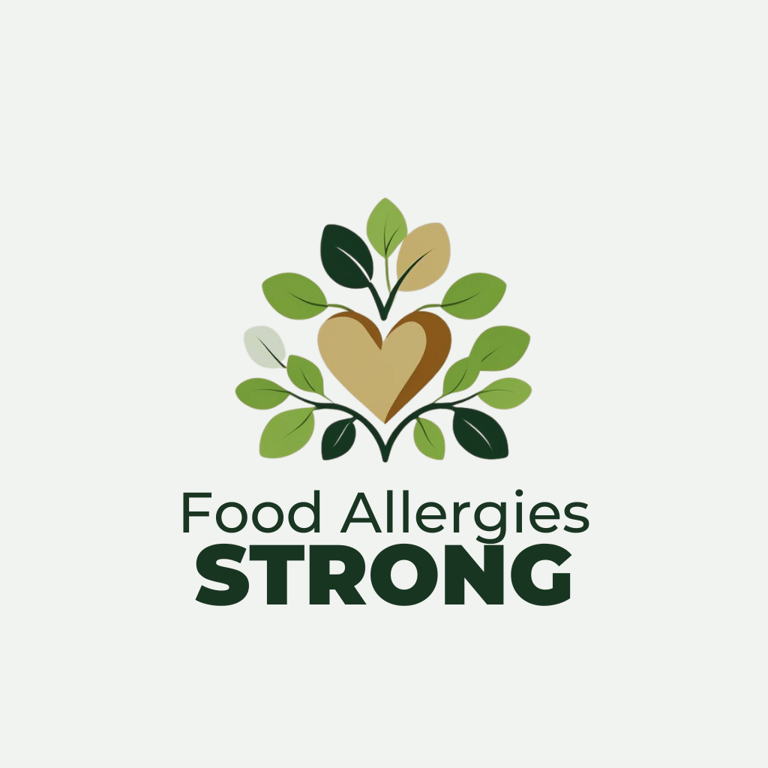When Two Worlds Collide: My ITSAN Video - Eczema, TSW, & Food Allergies
How severe eczema and topical steroid withdrawal led to food allergies - and why I shared our healing story with ITSAN.org's community. Discover how my family's journey through severe eczema, topical steroid withdrawal, and food allergies led to a meaningful collaboration with ITSAN.org. Learn about the science-backed connections between these conditions and our path to healing.
MANAGING BEYOND FOOD
5 min read


When Two Worlds Collide: My Video with ITSAN
I was honored when ITSAN.org (International Topical Steroid Awareness Network) invited me to share our story with their community. It's not often that the food allergy world and the topical steroid withdrawal world intersect, but our family's journey bridges both experiences in ways that I hope can help other families.
Why This Collaboration Mattered
If you've followed our journey, you know that my son's path to healing wasn't straightforward. What started as "simple" baby eczema quickly became a complex web of topical steroid addiction, compromised immunity, and severe food allergies. At just eight months old, a friend's warning about his own 15+ years of steroid use opened our eyes to something our medical team had never mentioned: topical steroid addiction and withdrawal.
Those alarming questions from ITSAN's website hit home: Did his skin rebound worse after stopping steroids? Did we need stronger doses over time? Did eczema spread to new areas? YES to all three. My infant had developed an addiction to prescription creams that were supposed to heal him.
The Complex Intersection of Eczema, TSW, and Food Allergies
Many families dealing with severe eczema and topical steroid withdrawal (TSW) also navigate food allergies, often without understanding the true nature of these interconnected conditions. While TSW itself doesn't directly cause food allergies, the underlying eczema that often leads to TSW has a well-established connection to food allergies.
Research shows that children with atopic dermatitis are six times more likely to develop a food allergy than those without atopic dermatitis, with up to 30% of people with atopic dermatitis also having food allergies. This occurs as part of what's known as the "atopic march" - the tendency for atopic dermatitis to be a risk factor for the development of food allergy, allergic rhinitis, and asthma.
However, it's important to understand that TSW is caused by the suppression and modulation of the skin cells by the prolonged application of topical steroids. It is not caused by a leaky gut, which is a separate and different condition. For families going through topical steroid withdrawal, most who come off steroids and do an IgE test would find that their IgE levels to many foods are extremely high. This is an effect from coming off the steroids that have suppressed the immune system for a long time, and this does not directly affect your skin. Your IgE levels will be higher to many foods for a period of time but this does not mean you cannot eat them or that you are truly allergic to that many foods.
The TSW community needed to hear from someone who had walked both paths successfully - someone who understood that healing requires looking at the whole picture, not just treating individual symptoms.
That's where our story became relevant to ITSAN's mission.
What We Covered in the Video
In my discussion with ITSAN, I shared:
The Real Connection Between Eczema and Food Allergies: How my son's severe atopic dermatitis put him at six times higher risk for developing food allergies - a well-established medical connection that affects up to 30% of people with atopic dermatitis. This occurs as part of the "atopic march," where eczema serves as a gateway to other allergic conditions.
The Antibiotic Connection: How those five rounds of antibiotics my son received as an infant didn't just contribute to his topical steroid addiction - research shows that multiple rounds of antibiotics during infancy significantly increase the risk of developing food allergies. His IgE levels skyrocketed to 3,075 IU/mL at one point(normal is 100-200).
The Healing Journey: What it actually looked like to go through topical steroid withdrawal with an infant while simultaneously addressing food allergies and rebuilding his immune system. The sleepless nights, the protective clothing, the radical decision to stop all moisturizers, and the nutrient-dense diet that helped restore his gut health.
Hope for the Future: How my son went from being allergic to almost all top allergens to just 3 of the top 9 through oral immunotherapy. His IgE levels dropped to 295 - still elevated, but dramatically improved.
Why This Matters for Our Food Allergies Strong Community
The overlap between severe eczema and food allergies is significant and scientifically well-established. Many families in our community are dealing with both conditions, often without understanding how they're truly connected through the "atopic march."
It's crucial to understand that topical steroid withdrawal (TSW) itself doesn't directly cause food allergies. TSW is caused by the suppression and modulation of skin cells from prolonged topical steroid use. The food allergy connection stems from the underlying eczema condition, not the steroid withdrawal process itself.
The medical whack-a-mole approach - treating symptoms without addressing root causes - leaves families frustrated and children suffering unnecessarily. Our story shows that healing is possible, even from complex, interconnected conditions, when you understand the true relationships between them.
Our story shows that healing is possible, even from complex, interconnected conditions. But it requires:
Advocating fiercely for your child
Questioning standard protocols when they're not working
Understanding that skin health and gut health are intimately connected
Building a support network of families who truly understand
The Ongoing Mission
ITSAN provides crucial education and support for families dealing with topical steroid withdrawal. Their work helps prevent other families from experiencing what we went through - the months of uncertainty, the trial and error, the feeling of being completely alone in navigating a condition that many medical professionals don't fully understand.
Sharing our story of hope and healing felt like a natural way to support their important mission.
Watch Our Full Discussion
I encourage you to watch our complete conversation, where we dive deeper into the practical aspects of healing. You'll hear firsthand what recovery looks like for families willing to take a different path.
[https://youtu.be/zgRrL3NqPkI?si=9lsm4V1uJM5nC0u6]
Whether you're dealing with stubborn eczema, questioning your current treatment approach, or trying to understand the connection between skin health and food allergies, this discussion offers insights from both personal experience and the broader TSW community.
Moving Forward Together
Every family's journey is different, but no family should feel alone in navigating these complex conditions. By sharing our stories - the struggles, the breakthroughs, the setbacks, and the victories - we create a roadmap for others facing similar challenges.
If our story resonates with you, I'd love to hear about your own journey, please email me at hello@foodallergiesstrong.com. And if you know a family struggling with similar issues, please share this post. Sometimes knowing that healing is possible makes all the difference.
---
Medical Disclaimer: The information shared in this post and video is based on our personal experience and is not intended as medical advice. Always consult with qualified healthcare professionals before making decisions about topical steroid use, food allergies, or any medical treatment. Every individual's situation is unique, and what worked for our family may not be appropriate for others.
Scientific References:
Children with atopic dermatitis are six times more likely to develop food allergies (National Eczema Association)
Up to 30% of people with atopic dermatitis also have food allergies (National Eczema Association)
TSW mechanism: Exogenous topical corticosteroids suppress intrinsic cortisol production by keratinocytes through negative feedback mechanisms (Frontiers in Allergy, 2025)
TSW is caused by an excess of NAD+ and is distinct from eczema (NIH/NIAID, 2025)
Corticosteroids can cause initial increases in IgE levels (Journal of Allergy and Clinical Immunology, 1978)
For more resources on topical steroid withdrawal, visit ITSAN.org. To read our healing journey, check out Our Food Allergy Story.

Food Allergies Strong
Created to help families move from survival to thriving with food allergies
Join Our Food Allergies Strong Community
© 2025 Food Allergies Strong
PRIVACY POLICY
MEDICAL DISCLAIMER
TERMS OF SERVICE
Get biweekly tips, tested delicious allergy-friendly recipes, and real-life guidance from a mom who's been there. No fluff, just practical help for thriving with food allergies.
